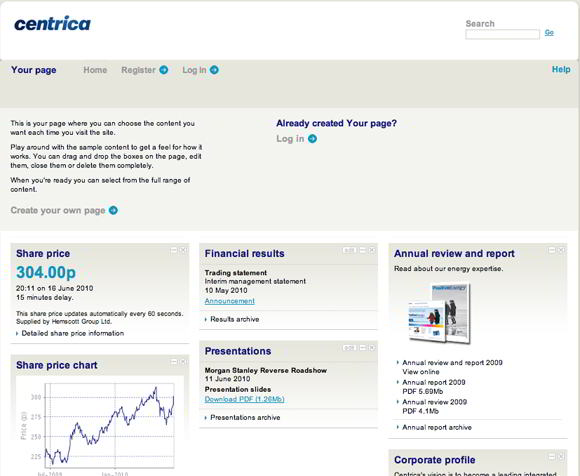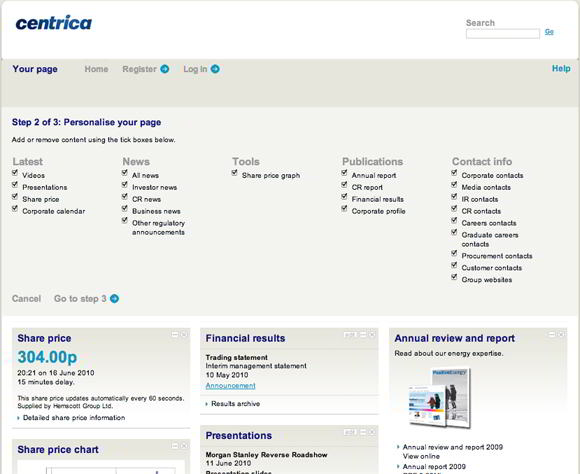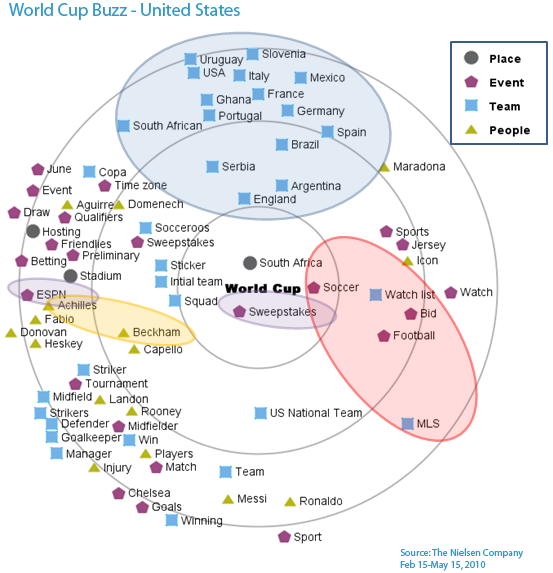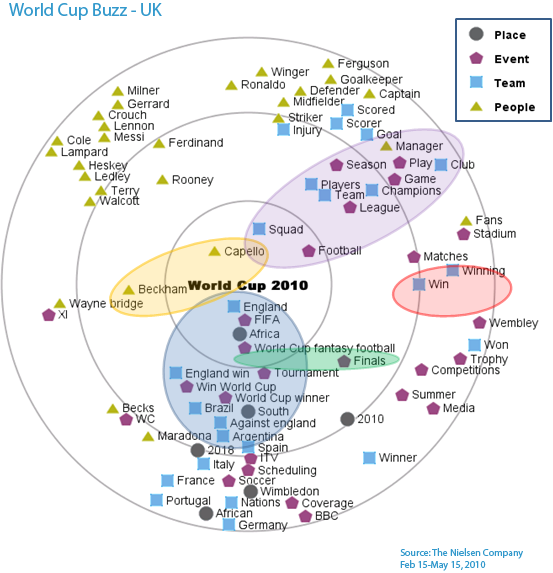There is a business rule of thumb known as the 80/20 rule which holds that 80% of effects come from 20% of the causes. For example, in retail, it is quite common to see that 80% of a store’s sales come from 20% of the items offered in the store. (Technically the rule is known as the Pareto Principle, after the Italian economist Vilfredo Pareto.) I have not seen any studies as to whether this principle holds for web site visitors, but given how widespread the application of the rule is, I see no reason why it should not. In which case, it makes eminent sense to make life easy for your website heavy users.
If a person is coming to your investor website multiple times, why not to let them set up what information they wish to receive in a single spot. You can do this by allowing visitors to set up their own personalized page with the links to the information they want to update.
This is something that Centrica, the UK energy company does. Set out below is a screenshot of a page they make available to web site visitors which allows customization of content.
A quick perusal of the site (shown below) shows that the company lets visitors choose from a large range of subjects – over 20 – to achieve the mix of information desired.
As a finishing touch, once the data has been set up to feed to the personalized page, the site allows the reader to customize the look and feel of the page. For example, boxes can be dragged and dropped to suit the viewer’s preference. Certain feeds, such as the Presentations and Financial results boxes allow the reader to edit the number of events they wish displayed. The effect is to achieve what marketers call mass customization – a mass-market product such as a web page, which can be tailored to the unique needs of each user.
Overall, it’s quite slick. It should allow the 20% of a company’s website visitors that account for 80% of the screen views to get the information they want quickly and easily, avoiding the frustration involved in chasing around on a web site looking for data. And you never want to frustrate your best customers.
In this series:
Previous post: What’s Your Strategy?
Next post: Annual Reports



 A
A 


